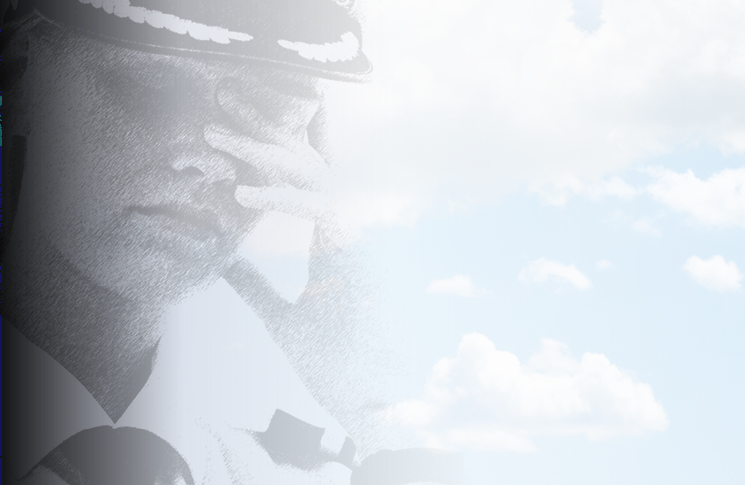For pilots, sleep is not a luxury. Your safety in flight depends on being well rested.
Once you’re a private pilot, you have the luxury to fly whenever you like – and with such privilege comes added responsibility.
While every pilot knows the importance of adequate rest, hydration and nourishment, complacency can occur. If you consider life stressors like money, career, family or health challenges, your mental and physical states may be further affected.
Robert ForsterLee, a CASA Human Performance Specialist, says, ‘The enhancement of technical flight aids makes the nontechnical aspects of flying all the more important. There is a growing reliance or dependence on technology, which is why human judgement, especially insight into one’s thinking and wellbeing, needs attention’.
Consider how often you realise you are having difficulties, and promise to do something about it tomorrow, but then push on and never get around to fix things.
Often you’ll think, ‘I’ll be right if I can just get through today’. However, ForsterLee says, ‘All the insight in the world is not worth a penny if no actions are taken’.
Feeling tired?
Fatigue is the subjective feeling of the need to sleep, an increased physiological drive to fall asleep and a state of decreased alertness.
The reason why you’re tired may vary, but fatigue is fatigue. It doesn’t matter if you’ve had poor sleep (tossing and turning all night), been out celebrating or worked the night shift. A single night of reduced sleep can lead to a tired mind and body that will affect your physical, mental and emotional performance and situational awareness.
ForsterLee says most people do not get enough sleep. ‘The 24-hour-a-day world we live in has reduced average amounts of sleep per night to around 7 hours during the work week in Australia,’ he says.
‘Living with reduced sleep – chronic sleep restriction – has become the norm and being a little tired to start your day is normal. This is the insidious nature of fatigue – having one bad night or lost night’s sleep is further taxing an already compromised individual.’
Consider this: having only 6 hours sleep per night for 2 weeks is equivalent to one night of complete sleep deprivation and, therefore, degrades performance.
One possible consequence of fatigue from insufficient sleep is spontaneous and uncontrolled microsleeps. It’s never a good idea for the pilot to fall asleep at the controls, that’s why obtaining more sleep after lost or poor-quality sleep is critical to every aviator.
Most adults require 7–9 hours of uninterrupted restorative sleep per night, which nourishes both mind and body, but not everyone gets this. Unfortunately, the use of mobile phones means exposure to bright light and short-wave (blue) light happen regularly just before going to sleep. That is why good sleep hygiene includes avoiding blue light from electronic devices at night and giving yourself at least an hour to wind down before switching out the lights. Another tip is to develop a regular sleeping pattern, which will be influenced by your circadian rhythm (internal body clock).
While it may seem that nothing much is happening when you’re asleep, sleeping is a vital and active process. During this time, cellular regeneration, energy production and physical healing take place.
Consider this: having only 6 hours sleep per night for 2 weeks is equivalent to one night of complete sleep deprivation and, therefore, degrades performance.
When you restrict sleep for 2 or more nights, your body enters a sleep debt. Unfortunately, napping doesn’t resolve it. To restore your body, you need at least 2 consecutive nights of proper restorative sleep.
Hydration, hydration, hydration
Did you know the brain is 80% water? And when you’re dehydrated, your performance and critical thinking capabilities decline? Throw in some hot conditions and physically demanding activities, and you’ll know about thirst.
The human body requires approximately 2 litres of water per day to:
- regulate body temperature, mood and sleep
- deliver oxygen to body parts
- assist with cellular activities and organ function
- flush out toxins
- lubricate joints – hello, stick and rudder skills.
Thankfully, this is one of the easiest ways of mitigating fatigue and keeping your brain alert. Invest in a drink bottle and stow it within arm’s reach. It’s much better to take regular sips throughout the day than when you’re already thirsty.
As a pilot, avoid overdoing it on sugary and caffeinated drinks – and moderate your coffee intake. Instead, invest in electrolyte drinks (without added sugar), aloe vera juice or coconut water. You can assist with cellular hydration by squeezing fresh lemon or sprinkling some pink Himalayan salt into your water. The latter balances the pH levels in your body and flushes out toxins.
Be mindful that alcohol and some medications can also affect hydration levels (if unsure, consult a DAME).
Your body needs fuel too
Thankfully, fuelling your body with nutrients is more cost-effective than aviation fuel at current prices. So, there’s no excuse not to nourish your body with whole foods.
The foods you consume play a critical role in memory, concentration and overall brain health. As a pilot, you need to be alert, and you want to ensure your blood sugar levels aren’t crashing when you’re operating an aircraft. To avoid spikes, lows and sugary cravings, it’s best to eat foods that address genuine hunger.
Holistic nutritionist (BSc) and healthy chef, Liv Kaplan, says, ‘Excess sugar can affect our mood, on both a small or large scale. Not only is sugar likely to suck away your energy, but it has also been shown to cause biological stress, and consuming it causes a rise in the stress hormone cortisol’.
Fuelling your body with nutrients is more cost-effective than aviation fuel at current prices.
Instead, reach for whole grains, nuts and seeds; quality animal proteins and good sources of healthy fats and oils are the way to go. Balance this with fresh fruit and vegetables (avoid the cruciferous kind such as cauliflower and broccoli before flight). And don’t fly on an empty stomach.
If you’re planning a long flight, prep healthy snacks so you don’t have to soothe hangry vibes with the vending machine. While a chocolate bar or energy drink seems like the energy boost you need, you can combat that hormonal response by fuelling your body with a wholesome breakfast before you leave.
Matters of the mind
Mental health matters and it’s not something to be dismissed, because the state of your mind directly influences your hormones, stress levels, general disposition and cognitive function capabilities.
Stress linked to relationships, finances and other life situations can cause you to feel anxious, sad, uncertain or angry. And, if something is bothering you on the ground, it can cloud your focus in flight. It’s best to address bothersome matters (when possible) before you hop into the aircraft.
According to the Australian Department of Health, 1 in 16 Aussies suffers from depression or mood disorders. While this doesn’t mean you can’t fly, it’s important to understand that these mental health challenges can directly affect your performance, concentration, situational awareness and decision-making. You’d service your car if the steering were pulling to one side or the engine warning light was blinking – so why wouldn’t you seek professional expertise if you noticed a change in mood or concentration?
Should you find yourself struggling and feeling out of sorts without properly understanding the cause, talk to your DAME. There’s a solution for everything – and it doesn’t always mean you can’t fly.
Other avenues to seek support include Beyond Blue, The Black Dog Institute, myCompass and MensLine Australia. These organisations can help with your mental wellbeing. Reach out if you need help.
Move more, fly better
Some people thrive on exercise; for others, it’s a chore. Regardless of which camp you fall into, regular movement should be part of your everyday routine. And the great news about that is a 10-minute brisk walk has incredible benefits on concentration, focus and problem-solving capabilities. Bump that up to 30 minutes, and you’ll boost your piloting skills.
In fact, regular exercise boosts brain cell growth and neurotransmitter production, which enhances memory. If, however, you need a bit more convincing about the benefits of movement, you’ll love this.
A recent article by Harvard Health Publishing explained that exercise ‘acts directly on the brain itself ‘and’ many studies have suggested that the parts of the brain that control thinking and memory are larger in volume in people who exercise than in people who don’t’.
The World Health Organization (WHO) says, ‘Physical activity enhances thinking, learning, and judgment skills and improves overall wellbeing’. For adults 18–64+ years old, the WHO guidelines also state to limit sedentary time. But until they invent the standing cockpit, sitting is the crux of what you do. In this case, the added light to moderate or vigorous bouts of physical activity will deliver health benefits for future flying.
For pilots who want to optimise their situational awareness and cognitive thinking and ensure those stick and rudder responses are efficient, try moving in any of these ways:
- light intensity: swimming or yoga. Walking at home, near the aerodrome or around the hangar while you make a phone call. Get those steps up and pump that oxygen through your body
- moderate intensity: cycling, Pilates, tennis or golf
- vigorous intensity: weightlifting, high-intensity interval training.
Always be sure to check with your doctor or a sports professional before engaging in any activities you’ve not done before or should you have any concerning injuries.
Tips to manage fatigue
- Hydrate with water, minimum 2 L per day, more when it’s hot
- Eat fresh whole foods
- Avoid too much sugar
- Limit alcohol intake and don’t drink 8 hours before departure
- Spend time in nature and away from screens
- Move your body frequently, exercise or take a brisk walk
- Avoid screens an hour before bed
- Get adequate sleep: the sweet spot is 7 to 8 hours
- For mental health matters, reach out for help
- Use the IMSAFE acronym to keep yourself in check
Be sure to check out ‘Pilot health and wellbeing’ on casa.gov.au and ‘Fit to fly’ in the VFRG. 
Further information
- Health Direct
- Sleep Foundation
- World Health Organization
- Hohn, C, et al. (2021) Preliminary results: The impact of smartphone use and short-wavelength light during the evening on circadian rhythm, sleep and alertness.
- Vhaduri, S & Poellabauer, C (2018): Impact of different pre-sleep phone patterns on sleep quality





